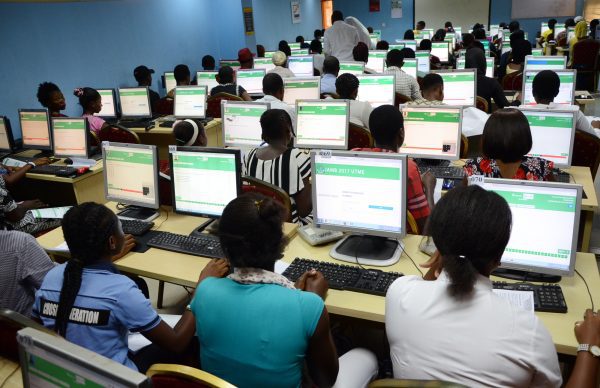Trending
JAMB to Review 2025 UTME Results Amid Complaints of Low Scores
The Joint Admissions and Matriculation Board (JAMB) has announced plans to review the 2025 UTME results after several candidates and parents raised concerns over poor scores and alleged technical problems during the examination.

A notice obtained in Abuja revealed that JAMB has scheduled a review meeting for Thursday. The meeting will involve vice-chancellors, rectors, provosts, school principals, examiners, and technology experts. Their aim is to examine the exam process and respond to the widespread dissatisfaction voiced by students and other stakeholders.
This comes after the 2025 UTME results were released last Friday, sparking nationwide complaints from students and parents. Many accused the board of technical glitches and inconsistencies in the results, with some candidates threatening legal action.
The official notice stated that the review panel would include members from respected bodies such as the All Nigeria Confederation of Principals of Secondary Schools, the National Association of Proprietors of Private Schools, the Computer Professionals Registration Council of Nigeria, and the Educational Assessment and Research Network. Top officials from universities, polytechnics, and colleges of education will also take part.
READ ALSO: NiMet Predicts High Rainfall and Up to 290 Rainy Days in Nigeria
“In furtherance of the commitment of the board to earn public confidence in its processes, the management has approved your participation to be part of the review panel,” the notice stated. “Your mandate is to identify any challenges and suggest solutions to avoid similar issues in the future.”
The review panel is expected to carry out its duties at no cost to the board.
The Unified Tertiary Matriculation Examination (UTME) is Nigeria’s key test for admission into higher institutions. It assesses candidates in four subjects, including the compulsory Use of English, and three other subjects based on each student’s intended course of study.
According to JAMB, 1,955,069 candidates sat for the exam this year. However, over 1.5 million students scored below 200 out of 400, which many see as the benchmark for competitive admission.
Here’s a breakdown of the results:
- 320 and above: 4,756 candidates (0.24%)
- 300–319: 7,658 candidates (0.39%)
- 250–299: 73,441 candidates (3.76%)
- 200–249: 334,560 candidates (17.11%)
- 160–199: 983,187 candidates (50.29%)
- 140–159: 488,197 candidates (24.97%)
- 120–139: 57,419 candidates (2.94%)
- 100–119: 3,820 candidates (0.20%)
- Below 100: 2,031 candidates (0.10%)
In total, over 75% of all candidates scored below 200. Many parents and students believe this is a sign of technical problems or scoring errors.
Some candidates have even rejected their results. One candidate, who previously scored 285 but got 156 this year, wrote on social media, “This score is not a true reflection of my performance.”
Another group, reportedly consisting of more than 8,000 candidates, has submitted official complaints to JAMB, citing technical challenges they faced during the test.
In response, JAMB spokesperson Dr. Fabian Benjamin said the board was taking the complaints seriously and speeding up its usual post-examination review process. This review normally happens months after the exam, but the board has decided to act quickly due to the volume of complaints.
“We are particularly concerned about the unusual complaints coming from some states,” Benjamin said. “We are carefully investigating the issues and working to fix any technical faults.”
The board assured the public that any student who truly experienced a disruption during their exam would be allowed to retake it. This is part of JAMB’s long-standing policy to ensure fairness in the exam process.
JAMB also said that this year’s low performance is not unusual. The Registrar, Prof. Ishaq Oloyede, explained that the statistics are in line with what has been seen in past years.
“This is not peculiar to this year. The performance is consistent with the trends of the last 12 years,” Prof. Oloyede noted.
For context, in 2024, 76% of candidates scored below 200. In 2022, about 78% of candidates did the same. In 2021, only 0.06% of candidates scored above 300.
The Minister of Education, Dr. Tunji Alausa, also weighed in on the issue. He said the low scores could be proof that the government’s efforts to stop exam malpractice are working. According to him, the new systems introduced by JAMB are helping to make the process more transparent and reliable.
“The high failure rate is a clear indication that our anti-malpractice measures are effective,” Dr. Alausa said. “We are seeing real results in the efforts to clean up the examination system.”
JOIN THE CONVERSATION→ Telegram | X/Twitter | Facebook | WhatsApp|WhatsApp Channel|Mobile App|Instagram















